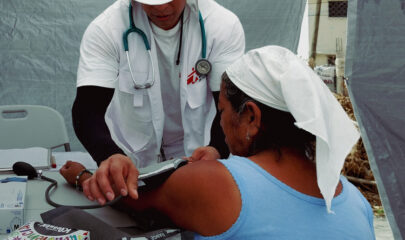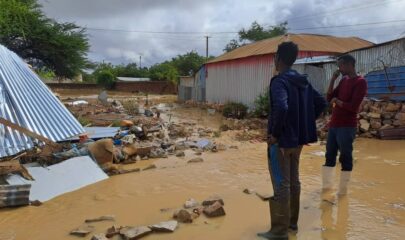The COVID-19 global health crisis continues to hold the world firmly in its grip. In many countries, the initial emergency response has turned into a sustained effort to contain recurring waves of infections, putting a relentless strain on healthcare systems, economies and social life.
Doctors Without Borders/Médecins Sans Frontières (MSF) started our first activities in response to the COVID-19 pandemic in January 2020. As the new coronavirus spread, MSF adapted or scaled up our ongoing activities and started new projects during the first six months of the year.
We committed substantial resources to developing dedicated COVID-19 projects, maintaining essential healthcare in our existing programs and assisting ministries of health prepare for and face the pandemic. This support was often in the form of training in infection prevention and control, health promotion and organizing healthcare services.
In the second half of 2020, most of this training was concluded, and the majority of our COVID-19-specific activities were handed over or closed. Most COVID-19-related activities have been integrated in our regular projects, although we maintain some COVID-19-focused projects and, with new waves of infections in some areas, are re-opening some activities. Where we are doing so is dependent on the local epidemiological situation, the local health needs and our own resources.
It is still difficult to provide a global narrative on our operations, as the pandemic is affecting every country in the world differently – our approach can therefore be different from country to country or even from project to project.
SNAPSHOT OF MSF’S RESPONSE
MSF has released two global accountability reports about our medical response to the COVID-19 pandemic. Available figures from June to August show how, during these three months, MSF continued to respond to the pandemic through our existing programs and through dedicated COVID-19 interventions in over 250 projects across 63 countries.



